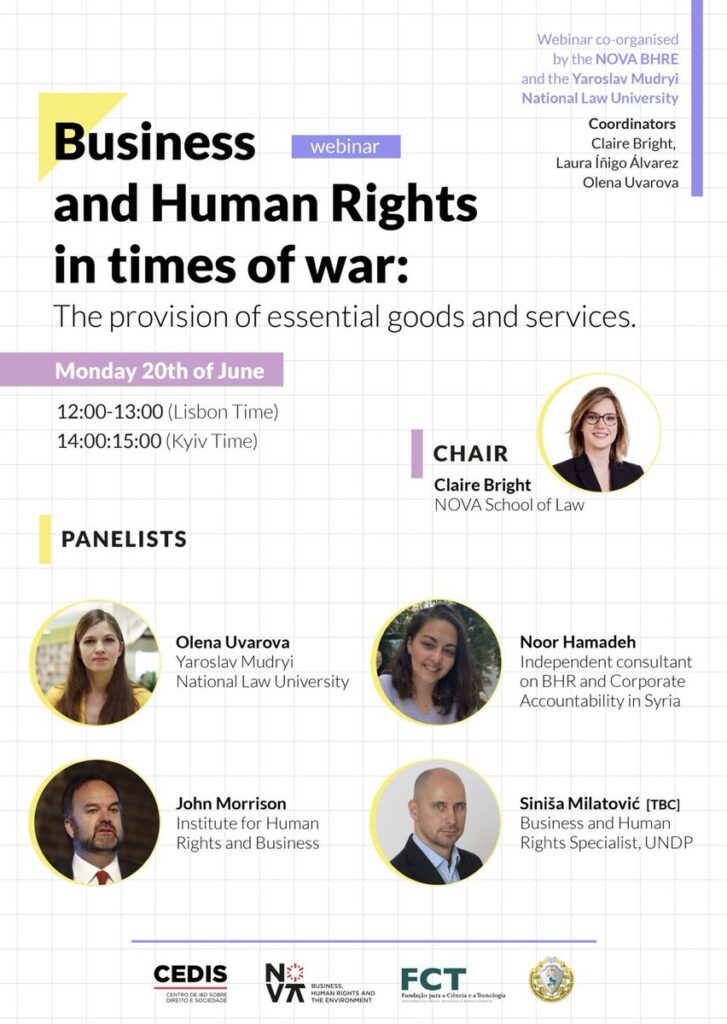Webinar “Business and Human Rights in times of war: The provision of essential goods and services”

This webinar was co-organised by the NOVA BHRE and the Yaroslav Mudryi National Law University, and co-funded by the Portuguese Foundation for Cience and Tecnology (FCT).
Access to basic (essential) goods and services is highly threatened in situations of crises – such as in times of the war – which creates a challenging operating environment. Providers of such essential goods and services (e.g. heating, food production and distribution, water supply, healthcare, transport, electricity, telecommunication, banking, etc.) are faced with a hard choice – ensuring the safety of their employees or ensuring that the public needs are met through the provision of such essential goods and services. As the current Ukrainian situation shows, business responses vary depending on the type of company (e.g. state-owned and municipality-owned enterprise vs. private companies; international company vs. local business). In addition, small and medium enterprises (SMEs) often demonstrate greater resilience than large companies.
An armed conflict can have both internal and external manifestations, creating a very heterogeneous environment affecting different groups and stakeholders. Consequently, ensuring access to essential goods and services can demand different approaches from companies depending on such context:
● in situations of active military operations (in particular, in populated urban areas);
● in occupied territories;
● in relatively calm areas that host large numbers of internally displaced persons, often arriving in large numbers at the same time.
Against this backdrop, this webinar discussed the following questions:
– Is there a universal or context-specific understanding of what essential goods and services are, and could it be impacted by a situation of war?
– How should the essentiality of goods and services be reflected in human rights risk assessment in situations of war?
– What are the roles of public (state) actors in ensuring access to essential goods and services in times of war? Is such role an exclusively public function?
– How could differences in conduct of providers of essential goods and services be explained and what leverage could be used to make it responsible?
– What tools should be used to find a right balance between the safety of employees and public needs?

